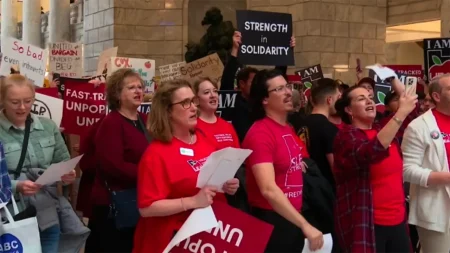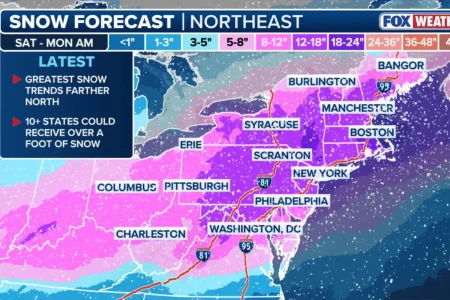France’s New Prime Minister Navigates Perfect Storm of Crises in First Week
Lecornu Takes Office Amid Mounting Challenges and National Uncertainty
In what political analysts are calling one of the most challenging government transitions in recent French history, newly appointed Prime Minister Sébastien Lecornu finds himself immediately thrust into a maelstrom of converging crises. Just days after taking the oath of office, Lecornu confronts a troubling trifecta: escalating social protests across major French cities, a parliament fractured by political deadlock, and financial markets increasingly nervous about the nation’s economic stability. The 38-year-old former Defense Minister, known for his methodical approach to governance, now faces a baptism by fire that will test both his leadership abilities and France’s institutional resilience.
“The challenges facing Prime Minister Lecornu represent a perfect storm of governance difficulties,” explains Dr. Marie Dufresne, political science professor at Sciences Po Paris. “What makes this situation particularly precarious is the simultaneity of these crises—social, political, and economic pressures converging at precisely the moment a new government is attempting to establish its authority.” Indeed, the timing couldn’t be more problematic for Lecornu, who inherited a government apparatus still reeling from months of political uncertainty following the snap legislative elections that produced no clear parliamentary majority.
Social Unrest Intensifies as Citizens Express Frustration
The most visible and immediate challenge facing the Lecornu administration is the wave of social protests sweeping across France. What began as isolated demonstrations against rising energy costs has rapidly evolved into broader expressions of public discontent. In Paris, Lyon, Marseille, and other urban centers, thousands have taken to the streets, with labor unions and grassroots organizations mobilizing supporters around issues ranging from the cost of living crisis to perceived governmental neglect of working-class communities.
Jean-Philippe Bertrand, spokesperson for the Citizens’ Collective for Economic Justice, articulated the protesters’ perspective: “The appointment of yet another technocratic government disconnected from everyday French reality solves nothing. We’re facing record inflation, stagnant wages, and diminishing public services. The French people demand concrete solutions, not political maneuvering.” The demonstrations have remained largely peaceful, though isolated incidents of property damage have occurred in several cities. Law enforcement officials report mobilizing significant resources to maintain order while respecting citizens’ right to protest. Interior Ministry data indicates participation numbers rising steadily day by day, presenting Lecornu with a delicate balancing act between addressing legitimate grievances and maintaining public order.
Parliamentary Deadlock Complicates Governance Efforts
Compounding the social unrest is an unprecedented parliamentary impasse that severely constrains Lecornu’s ability to implement decisive policy measures. Following elections that produced a fragmented National Assembly, with three major political blocs—centrists loyal to President Emmanuel Macron, the left-wing alliance, and the far-right National Rally—each commanding significant but insufficient numbers, the new government lacks a clear mandate or working majority.
“We’re witnessing a genuine governance crisis,” notes constitutional scholar Pierre Lavigne. “The Prime Minister must navigate between hostile parliamentary factions, each capable of blocking legislation but none strong enough to govern alone.” This parliamentary arithmetic makes even routine legislative functions challenging, let alone ambitious reform programs. Lecornu’s first policy speech to the National Assembly was met with skepticism from opposition benches, with both left and right signaling readiness to table motions of no confidence should the government pursue policies they oppose. Political observers point to the looming budget approval process as the first major test of Lecornu’s parliamentary management skills, with failure potentially triggering a governmental collapse just weeks into his tenure.
Economic Turbulence Adds Urgency to Government Response
As if social unrest and political deadlock weren’t sufficient challenges, Lecornu must simultaneously confront worrying economic indicators and market uncertainty. The euro has weakened against major currencies, while France’s borrowing costs have increased as investors reassess risk premiums on French sovereign debt. The CAC 40, France’s benchmark stock index, has experienced volatility unprecedented since the early pandemic period, reflecting domestic and international concern about the country’s economic trajectory.
“Financial markets abhor uncertainty, and France currently represents a concentration of political and social unknowns,” explains economist Sophie Mercier of BNP Paribas. “The combination of government instability, fiscal constraints, and social discontent creates legitimate questions about France’s ability to meet its financial commitments and implement coherent economic policy.” The European Commission has already signaled concerns about France’s projected budget deficit, which exceeds Eurozone stability parameters. This places additional pressure on Lecornu to formulate a credible fiscal consolidation plan while simultaneously responding to social demands for increased public spending. The government’s economic team, led by newly appointed Finance Minister Thomas Cazenave, has begun emergency consultations with business leaders, labor representatives, and international financial institutions to develop response strategies.
International Implications Extend Beyond French Borders
The multidimensional crisis confronting France’s new government carries implications far beyond national boundaries. As a founding member of the European Union, a nuclear power, and a permanent member of the UN Security Council, France’s stability directly impacts European cohesion and international diplomacy. Partner nations are monitoring developments closely, with particular attention from neighboring European countries whose economies and security arrangements are deeply intertwined with French stability.
German Chancellor Olaf Scholz expressed measured concern during a press briefing in Berlin: “We are following events in France with attention and solidarity. The Franco-German relationship remains the cornerstone of European cooperation, and we stand ready to support our French friends through this challenging period.” Similarly, European Commission President Ursula von der Leyen emphasized the importance of French stability to broader European projects: “A strong and stable France is essential for European progress on climate initiatives, security cooperation, and economic resilience.” The international dimension adds another layer of complexity to Lecornu’s challenge, requiring him to project confidence and continuity in foreign affairs while managing domestic turbulence.
Lecornu’s Response Strategy Begins to Take Shape
Despite the daunting array of challenges, Prime Minister Lecornu has begun implementing a multi-pronged strategy aimed at stabilizing the situation and establishing governmental authority. In a nationally televised address from Matignon, the Prime Minister’s official residence, Lecornu outlined a pragmatic approach emphasizing dialogue, transparency, and incremental progress.
“The French people deserve a government that listens before it acts, that acknowledges difficulties without surrendering to pessimism, and that places national interest above partisan advantage,” Lecornu stated. His immediate action plan includes the formation of a National Dialogue Council bringing together representatives from across social sectors, political affiliations, and regional authorities to identify consensus priorities. Simultaneously, he has dispatched cabinet ministers to engage directly with protest leaders, promising substantive discussion of grievances rather than dismissal or confrontation. On the economic front, Lecornu has announced a comprehensive financial stability package to be unveiled next week, reportedly including targeted relief measures for vulnerable households combined with reassurances to financial markets regarding fiscal responsibility. Political observers note that while these initiatives represent logical first steps, their success depends on factors largely beyond the Prime Minister’s direct control—particularly the willingness of opposition parties to engage constructively and the patience of an increasingly frustrated citizenry.
As France navigates this period of exceptional challenge, the coming weeks will prove decisive not only for Lecornu’s premiership but potentially for the stability of France’s Fifth Republic governance model itself. With social tensions escalating, political divisions deepening, and economic pressures mounting, the new Prime Minister faces a leadership test of historic proportions—one that will require extraordinary skill, resilience, and perhaps a measure of good fortune to overcome.






